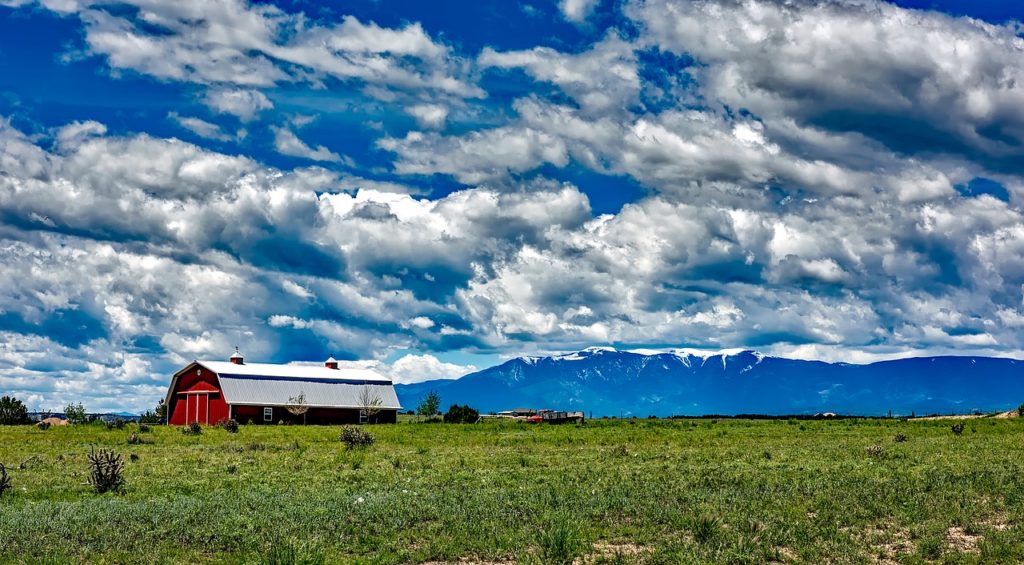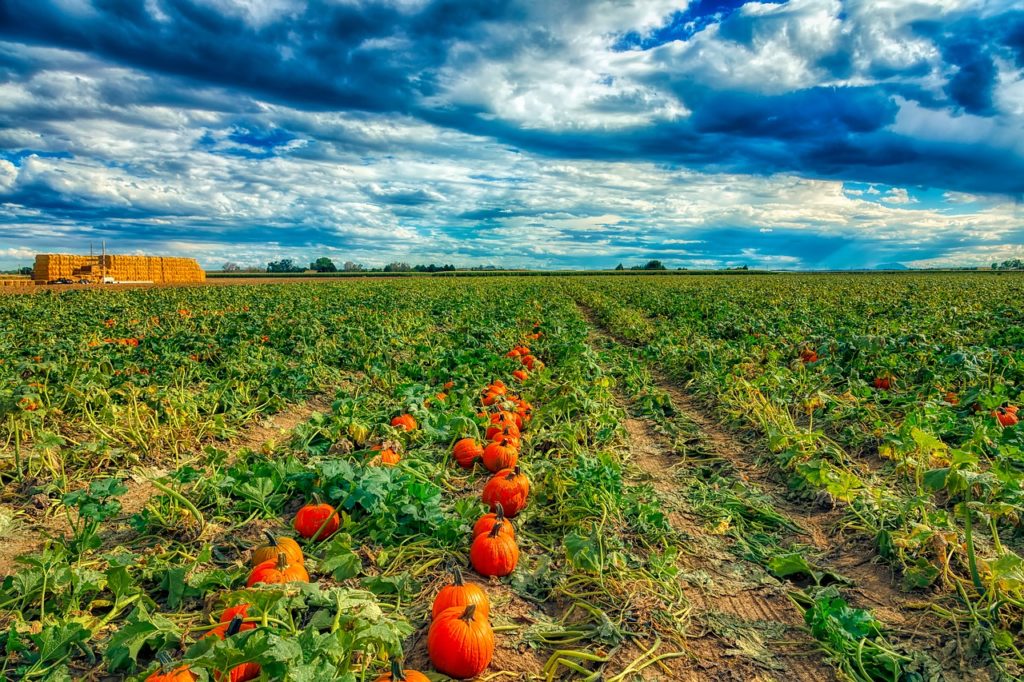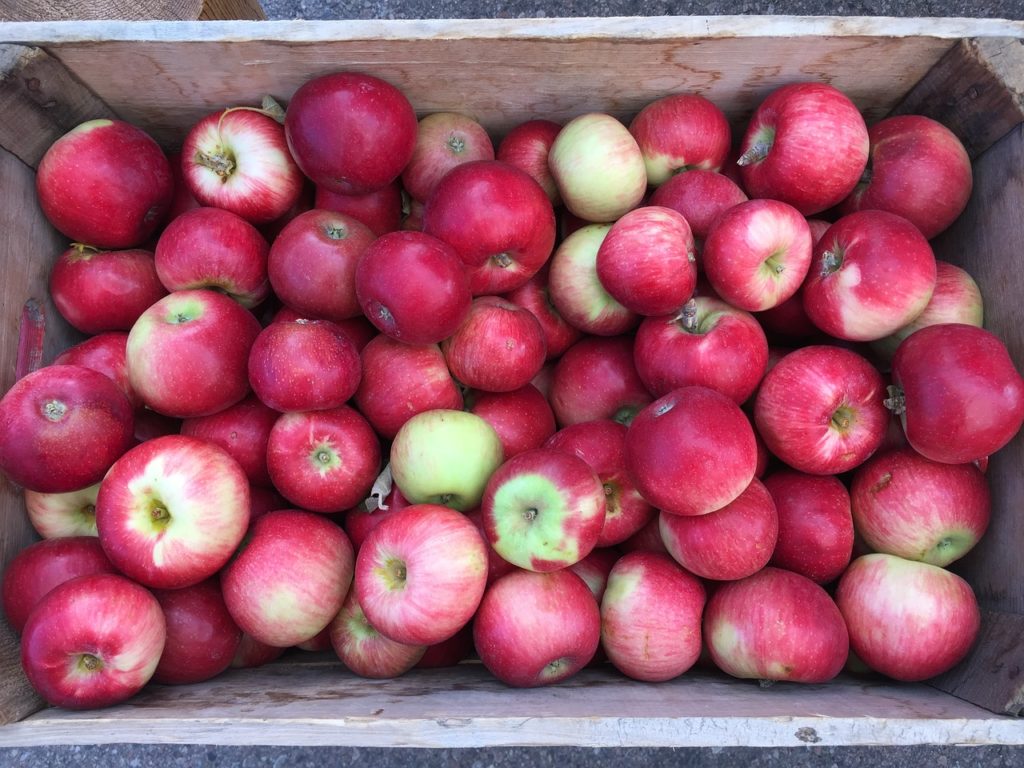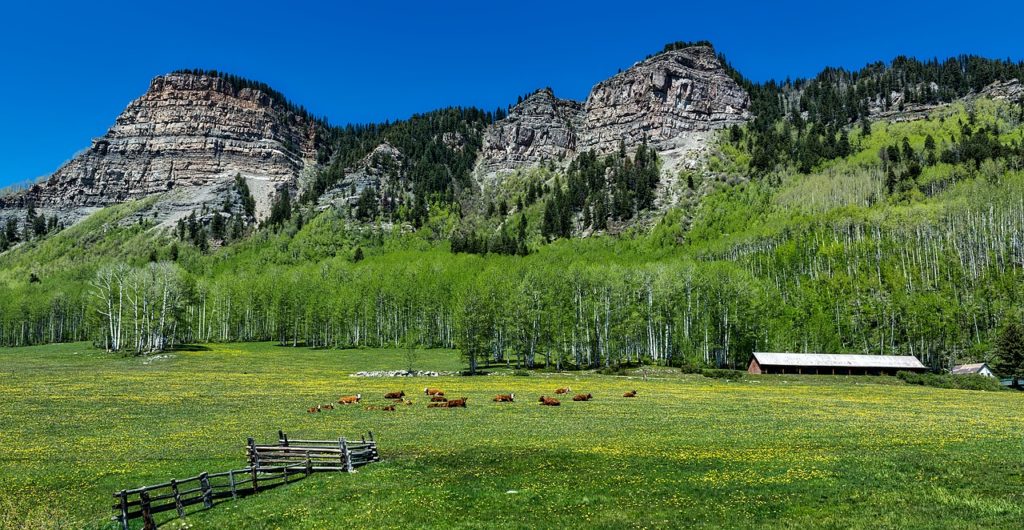How to start homesteading in Colorado
Mountainous Colorado makes for beautiful scenery and ski slopes, but the state’s geography can make farming and homesteading a little challenging. The state has the highest elevation of any other state, averaging 6,800 feet above sea level across the Centennial State (so named because it achieved statehood a century after the signing of the Declaration of Independence).

Still, the land is inexpensive in Colorado and the state is generally friendly to raising livestock and building networks between farmers. If the mountains are calling and you feel you must go, here’s what you need to know about how to start homesteading in Colorado.
Buying farmland in Colorado
According to 2019 data from the United States Department of Agriculture (USDA), the average cost of farm real estate in Colorado was $1,570 per acre, compared to the national average of $3,160 that same year. The average cost per acre for cropland was $2,160 and $845 for pasture.
According to the USDA’s 2018 State Agriculture Overview, Colorado has 31.6 million acres of farmland and 38,900 farms. The average farm size is 817 acres.
Persons engaged in the business of buying, selling, brokering or transporting most unprocessed farm products must file an application to transact such business with the Colorado Department of Agriculture, Farm Products Section.
Through the Beginning Farmer Program, the Colorado Agricultural Development Authority provides tax-exempt bonds for low-interest financing of land or equipment purchases. Individuals must qualify as beginning farmers to participate in this program, which is defined as a person who does not own more than 30 percent of the median county farm size.
Growing crops in Colorado
Colorado’s most important field crops are wheat, corn and hay. Beans, grain sorghum, potatoes and sugar beets are also produced, and apples are the state’s leading fruit crop.

The USDA hardiness zones in Colorado range from 3a in high-altitude mountainous regions, with minimum temperatures as low as -40 degrees Fahrenheit, to the balmy zone 7a in pockets throughout the south.
Colorado’s Sunset climate zones, which are often considered more accurate in the Western United States because they consider factors like maximum temperature and elevation, include zone 1a, the coldest mountain and intermountain regions of the contiguous United States; zone 1b, the coldest eastern Rocky Mountains and plains; zones 2a and 2b, the cold and warmer intermountain and mountain areas, respectively; and zone 3a, the mild areas of the mountain and intermountain climate.
Growing crops in some mountainous areas of Colorado can be especially difficult because of the inherent challenges of high-altitude gardening. Growers in Colorado may persistently face scorching heat, high winds, poor soils, lack of water or and bitter cold winters.
However, Colorado’s cool, wet springs are ideal for growing greens such as lettuce, spinach, kale and broccoli. Other cool-season crops that grow well in Colorado include turnips, beets, peas, carrots, radishes, chard, cabbage, parsnips, cauliflower, leeks, Brussels sprouts, potatoes, onions and parsley.
An excellent warm-season crop to grow in Colorado is zucchini and summer squash. Pumpkins also grow well in Colorado’s dry climate. Other warm-season crops that grow well in Colorado include tomatoes, peppers, eggplant, beans, cucumbers, corn, squash and melons.
Colorado soil tends to be slightly alkaline and low in organic matter, so they generally require significant amendments. Seitz is the official state soil of Colorado. Unlike many mountainous soils, which tend to be shallow and rocky, Seitz soils are deep and well-drained. Seitz soils are located primarily in southwestern Colorado are predominantly found at higher cooler elevations and are used primarily as pastureland for grazing cattle.
Raising animals in Colorado
Cattle and calves are the driving force in Colorado’s agricultural economy. Colorado farmers also profit from dairy products. Other livestock products include hogs, sheep, lambs and chicken eggs.
In Colorado, landowners have the inherent right to fence their land or leave it unfenced because it is an “open range” or “fence out” state. Without a “lawful” fence, a landowner has no civil recourse for damage done to their property by trespassing livestock. When a property is protected by a lawful fence, civil recourse is available to the landowner for damage caused by trespassing livestock, but the burden of proof falls upon the landowner to prove the livestock broke through their legal fence and did not come through an open gate or an unfenced portion. It is legal to take custody of livestock found trespassing on your property, but the landowner is legally responsible for their care and feeding. Livestock invading fenced property is not a criminal offense, but civil recourse is available to the property owner.
Health certificates (or Certificates of Veterinary Inspections) are required on all livestock except livestock consigned directly to federally inspected slaughtering establishments and livestock moving to an approved market in Colorado. Individual identification will be required as import regulations require. The State Veterinarian may require a statement by the issuing veterinarian concerning certain designated or reportable diseases that may be occurring in the state of origin. Specific livestock import requirements for Colorado can be found on the Colorado Department of Agriculture website.
There are a number of livestock auctions that take place throughout the state of Colorado, including the Burlington Livestock Exchange in Burlington, the Centennial Livestock Auctions in Fort Collins, Livestock Exchange LLC in Brush, La Junta Livestock Commission Inc in La Junta, Valley Livestock Auction LLC in Monte Vista, the Sterling Livestock Commission in Sterling, Producers Livestock Marketing Association in Greeley and Winter Livestock in La Junta.
Selling food in Colorado
In Colorado, farmers markets selling only uncut fresh fruits and vegetables are exempt from licensing requirements of the Colorado Retail Food Protection Act. Samples of these products may be offered to consumers by vendors that are not licensed as retail food establishments. Unlicensed vendors, however, should follow the minimum sanitation guidelines to reduce the chance of foodborne illness caused by unsafe food samples.

In Colorado, counties and cities may have different licensing and regulatory requirements for retail markets like farmers markets, roadside stands and community-supported agriculture subscriptions, so be sure to consult with authorities in each jurisdiction.
In 2012, the Colorado Legislature passed a bill allowing individuals to sell certain types of cottage food products in an unlicensed home kitchen. Cottage food products include such items as spices, teas, dehydrated produce, nuts, seeds, honey, candies, jams, jellies and certain baked goods. It also includes whole eggs if the vendor sells less than 250 dozen per month.
Cottage food operations require no license or permit from the Colorado Department of Public However, cities and counties may have their own requirements or recommendations for cottage food producers.
Net sales for each product produced by a cottage food operation must not exceed $5,000 annually. Products must be sold directly by the cottage food operator to the end consumer. Sales by consignment or to retail food or wholesale food establishments are prohibited.
A cottage food operation may only sell cottage food products which are offered with a label containing the following information (printed in English): the identification of the cottage food product; the producer’s name and the address at which the cottage food was produced; the producer’s current phone number or email address; the date on which the food was produced; a complete list of ingredients; and the following statement: “This product was produced in a home kitchen that is not subject to state licensure or inspection and that may also process common food allergens such as tree nuts, peanuts, eggs, soy, wheat, milk, fish and crustacean shellfish. This product is not intended for resale.”
The Colorado Cottage Foods Act requires producers to take a food safety course that includes basic food handling training and is comparable to, or is a course given by the Colorado State University Extension Service or a state, county, or district public health agency. Producers must maintain a status of good standing in accordance with the course requirements, including attending any additional classes if necessary. Safe food handling courses should include topics on safe food sources, personal hygiene, sanitation of equipment, worker illness, food temperature control, safe water, sewage disposal, pest control, proper handwashing and control of toxics.
If a vendor plans to sell fewer than 40 cases (one case is about 30 dozen eggs, according to the Colorado Department of Agriculture) of their own flock’s eggs per week on the farm, at a farmers market, or through a community-supported agricultural organization or similar venue, then they are exempt from licensing by the Colorado Department of Agriculture.
Eggs sold at farmers markets, community-supported agricultural organizations and similar venues must be transported in a clean and sanitary environment between 33 degrees Fahrenheit and 41 degrees Fahrenheit. The egg packages must be labeled with: the address where the eggs originated; the packaging date; if not treated for salmonella such as by pasteurization, they must be labeled with “Safe Handling Instructions: To prevent illness from bacteria, keep eggs refrigerated, cook eggs until yolks are firm, and cook any foods containing eggs thoroughly.” Labels must also include “These eggs do not come from a government-approved source.”
If a vendor’s flock size is under 3,000 domesticated chicken hens, and you wish to sell your eggs to a grocery store, restaurant or other institution, then a Class I Egg Producer license is required and the operation will be inspected by the Colorado Department of Agriculture.
An on-farm small-flock egg producer inspection involves: checking the washing and sanitizing of the eggs to ensure that the eggs are free from any substance or condition that could adulterate or adversely affect the wholesomeness or quality of the eggs by absorption of bacteria or odors; verification that all eggs are candled and graded before being packed; the inspector will also verify that your candling device is sufficient; inspection of the storage and transportation coolers in use, and that the eggs are stored and transported in a sanitary environment between 33 and 41 degrees Fahrenheit
The cartons must be properly labeled by the producer with the accurate Grade (AA, A, or B); size (Peewee, Small, Medium, Large, Extra Large or Jumbo); packing Date, and business name and address. No expiration date is required; but if one is used, it may only be 30 days past the pack date.
The Colorado Retail Food Establishment Rules and Regulations may also require egg sellers to hold a retail food establishment license.
Living off-grid in Colorado
Some areas of Colorado are especially attractive to homesteaders looking to live off-grid. In Costilla County, there has been a major influx of off-grid residents to the San Luis Valley because of the lax zoning regulations, cheap property and an existing community of self-reliant off-grid homesteaders.
The Advancing Colorado’s Renewable Energy and Energy Efficiency (ACRE3) program promotes the development and implementation of renewable energy and energy efficiency projects for Colorado’s agricultural producers and processors. The program provides financial and technical assistance and education to help agricultural producers and processors cut energy costs, develop their own energy resources, and create markets for agriculturally-derived energy and fuels.
Colorado organizations for new farmers
- Colorado Young Farmers Education Association
- Guidestone Colorado
- Colorado Farm and Food Alliance
- Uproot Colorado
- Colorado Fruit and Vegetable Growers Association
- Colorado Agricultural Leadership Foundation
- Colorado Agriculture Council
- Colorado Farm Bureau
- Colorado State University Extension

How difficult is it to start homesteading in Colorado?
Though homesteading in Colorado can be difficult due to the challenges of growing crops, the state’s land is cheap and plentiful, livestock-friendly and offers opportunities to live off-grid. If you are looking to get started farming or homesteading out West, Colorado is a great place to do so.

Where is this cheap and plentiful land found? Thank, you.